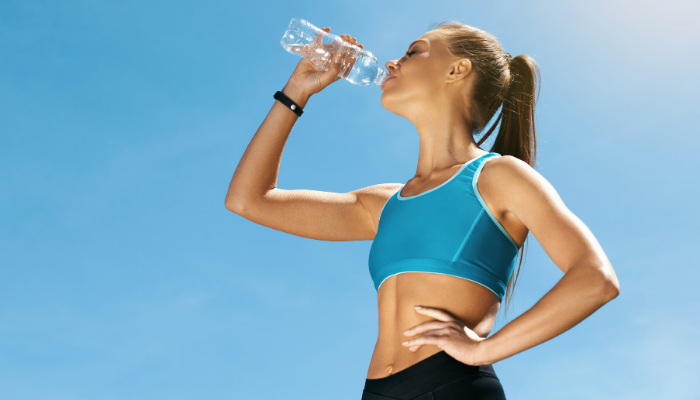
When trying to stay active through the dog days of summer, it becomes more important than ever to make sure that you’re hydrating properly. Most doctors recommend drinking at least two daily liters of water under ordinary circumstances, but the necessary amount increases as we lose fluids by sweating through the hottest part of the year. If you’re jogging, cycling, or just spending time outside in your yard or garden, it’s crucial to be conscious of staying hydrated.
What Does Dehydration Do to Your Body?
Water makes up more than half of your body and is essential to every bodily function. Your body naturally loses water, most commonly from sweating and urination, but vomiting and diarrhea can also cause increased loss of fluids. Loss of 1-3% of body weight in water has been shown in studies to inhibit cognitive function and concentration, cause headaches, and reduce physical endurance. Drinking enough water is also necessary to keep your muscles and joints functioning properly and avoid your body overheating.
More severe dehydration can be accompanied by more serious complications. If you are not drinking enough water during strenuous exercise you could be at risk of heat-related issues ranging from mild heat cramps to heat stroke, which can be fatal in some cases. Being dehydrated frequently or for a long period of time increases your potential for urinary tract infections or digestive problems ranging from kidney stones to serious kidney failure.
One of the most serious potential complications of extreme dehydration is hypovolemic shock, which occurs when reduced blood volume causes blood pressure and oxygen levels to plummet. This condition can be life-threatening if medical attention is not sought immediately.
How to Tell You’re Dehydrated
It’s a good idea to drink water throughout the day regardless of how you feel, but when you’re losing a lot of sweat because of exercise, fever, or any other reason, you should be especially aware of the warning signs that you need to replenish your fluids. Remember: just because you’re not thirsty doesn’t mean you’re not dehydrated!
Common symptoms of dehydration include:
Headache/Lightheadedness: Even mild dehydration can cause headaches or faint, woozy feelings, usually due to low blood pressure.
Bad Breath: When you’re not drinking enough fluids, your body isn’t able to produce saliva. Dry mouth results in increased bacteria buildup, which causes bad breath.
Irritability & Trouble Concentrating: Dehydration can have a noticeable impact on your mood, making you feel depressed, tense, or cranky. You may also find that it is more difficult to complete simple tasks.
Infrequent Urination & Dark Urine: As the old saying goes, if your pee is white, you’re all right. Healthy urine should come out clear or white. If your urine is dark yellow in color, you should be drinking more water.
Dry Skin: Your skin loses moisture when you sweat, and can become dried out if you’re not drinking enough fluids. Be aware of whether your skin feels tight, dry, or flaky, or if it becomes flushed or reddened in appearance.
Fatigue: Even if you’ve gotten enough sleep, dehydration can leave you feeling physically and mentally exhausted. Take notice of any feelings of sluggishness or lethargy.
Nausea: Feelings of nauseousness and dizziness can be signs that your body isn’t getting enough water. Vomiting caused by nausea also has the compounding effect of drying your body out even further.
How to Prevent Dehydration
The key is to stay hydrated at all times, and not just when you’re sweating or exercising. If you’re out in the heat, how well your body functions depends not just on how much water you’re drinking now, but how much you got yesterday as well. Try to moderate your intake of substances that cause dehydration, particularly alcohol and caffeine.
In most cases, treating dehydration is as simple as drinking more water. However, if you begin to notice signs of severe dehydration such as stomach cramps, fainting, or heatstroke, you should contact a doctor immediately.


